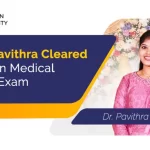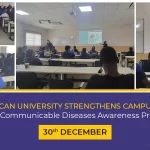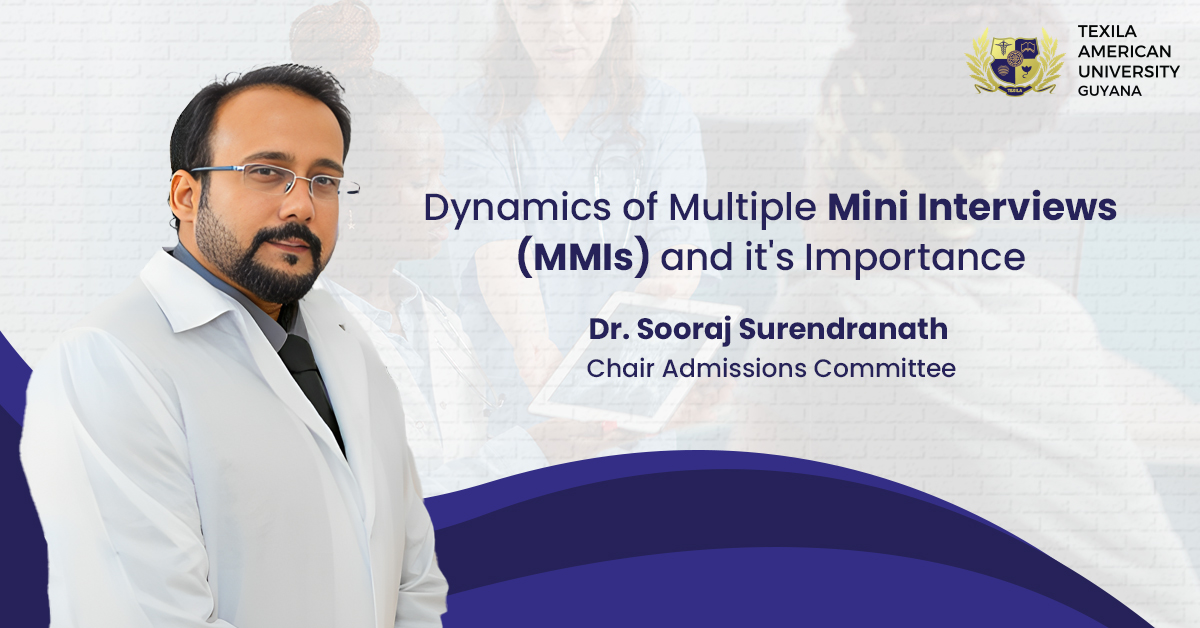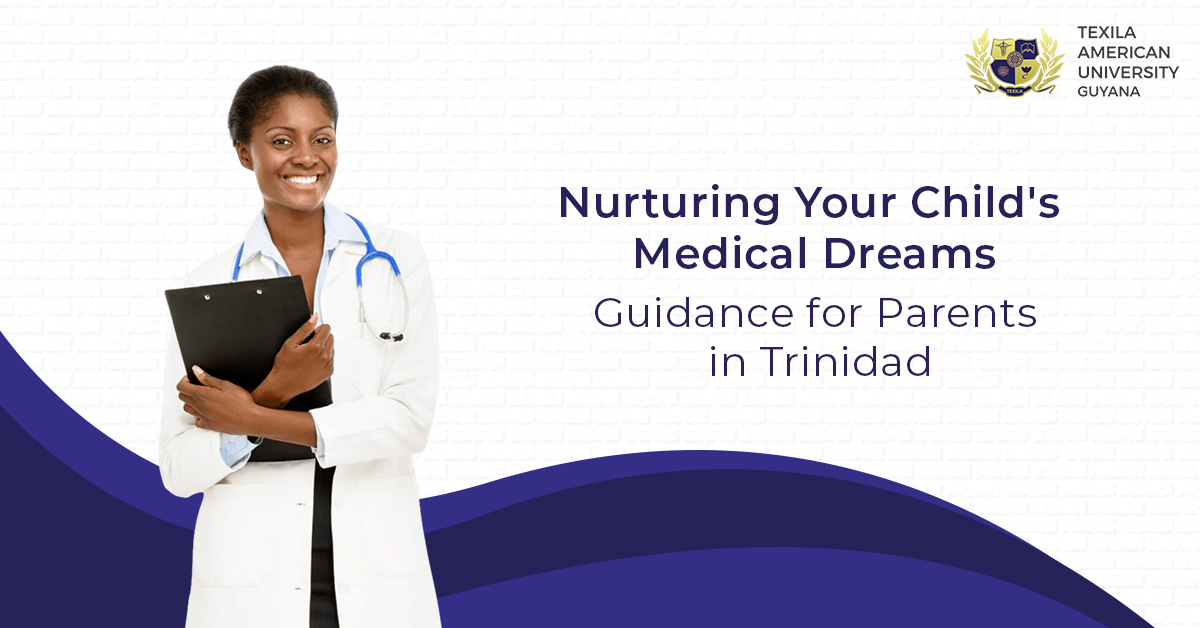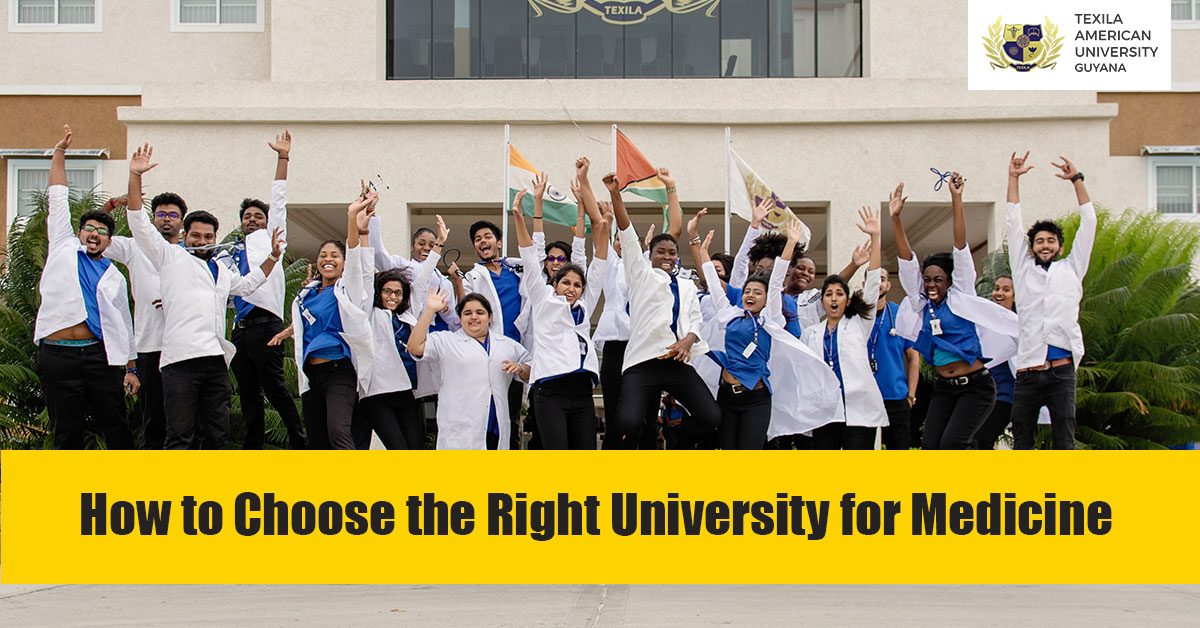Blog Summary
Embarking on the journey to becoming a doctor involves critical decisions, and choosing the right MD program is paramount. While traditional paths exist, the appeal of Caribbean MD programs is on the rise. This blog navigates through the advantages and challenges of pursuing an MD in the Caribbean, offering insights into the unique cultural experiences and competitive admissions. Delve into the critical elements to consider when selecting a Caribbean MD program and the distinctive admission processes. Whether considering the structure of the MD course, personal stories of MD students, or alternative paths without NEET exams, this comprehensive guide illuminates the intricate journey of aspiring doctors.
Choosing the Right MD Program: Exploring Caribbean MD Programs
When embarking on the journey to become a doctor, one crucial decision is selecting the right MD program. While many aspiring medical professionals look to traditional programs, there is a growing interest in pursuing an MD program in the Caribbean. This unconventional choice comes with its own set of advantages and challenges.
Advantages of Pursuing an MD Program in the Caribbean
The Caribbean is increasingly recognized as a destination for medical education. Some of the key benefits include:
- Quality Medical Education: Caribbean MD programs often provide high-quality medical education with experienced faculty and state-of-the-art facilities.
- Competitive Admissions: Caribbean medical schools are known for being more accessible regarding admission criteria, making them attractive for students who may not meet the stringent requirements of some traditional MD programs.
- Diverse Cultural Experience: Studying medicine in the Caribbean offers a unique cultural experience. Students interact with peers from various backgrounds, gaining a broader perspective on healthcare.
- Clinical Rotations: Many Caribbean MD programs offer clinical rotations in the United States, allowing students to gain exposure to the American healthcare system.
Challenges of Pursuing an MD Program in the Caribbean
However, this path is not without its challenges, which include:
- Licensure and Certification: Graduates of Caribbean MD programs may face challenges obtaining licenses to practice in certain countries, necessitating additional exams and processes.
- Financial Considerations: Tuition fees for Caribbean MD programs can be substantial. Students need to plan their finances carefully.
- Cultural Adaptation: Adapting to a diverse cultural environment can be challenging, especially for international students.
Critical Elements to Consider When Selecting the Caribbean’s MD Program
- Accreditation: Ensure the program is accredited by recognized medical authorities to avoid future licensing issues.
- Clinical Rotations: Look into the availability and quality of clinical rotations offered by the program.
- Alumni Success: Research the success of alums, including residency placements and board exam pass rates.
- Financial Planning: Develop a thorough plan for living expenses, tuition, and possible loan payback.
- Location and Lifestyle: Consider the institution’s location and whether it aligns with your personal and cultural preferences.
Admission Process and Requirements for Caribbean MD Programs
Caribbean MD programs typically have more flexible admission criteria compared to traditional programs. While specific requirements vary, here are common elements to prepare for:
- Academic Prerequisites: Most programs require a bachelor’s degree with specific science prerequisites, such as biology and chemistry.
- MCAT or Alternative Exams: Many Caribbean MD programs require the MCAT, though some accept alternative exams.
- Interview Process: Expect an interview as part of the admission process to assess interpersonal and communication skills.
- Letters of Recommendation: It is common to need strong recommendation letters.
Becoming a Doctor: Navigating the MD Course Journey
The path to becoming a doctor is a rigorous and rewarding journey. It involves a comprehensive MD course that encompasses various stages, each with its own set of challenges and experiences.
Duration and Structure of an MD Course
The MD course is typically a multi-year program, which varies in duration across different countries. In the United States, for instance, it usually takes four years, followed by residency training. In some Caribbean MD programs, the duration might be shorter, making it an attractive option for those looking to enter the workforce sooner.
The MD course is structured to provide a solid foundation in basic sciences, followed by clinical rotations and speciality training. The curriculum covers anatomy, physiology, pharmacology, and clinical skills.
Stages and Challenges in the Journey to Becoming a Doctor
The path to becoming a doctor can be divided into several stages, each with its unique challenges:
- Pre-Medical Phase: This phase includes undergraduate studies focusing on pre-medical courses. The challenge lies in maintaining high academic performance and preparing for the MCAT or other relevant entrance exams.
- Medical School: Once admitted, the challenges include a heavy workload, long hours of study, and managing the stress associated with medical education.
- Clinical Rotations: These rotations provide hands-on experience with patients. The challenge is to apply theoretical knowledge in real-world clinical settings, all while adhering to ethical and professional standards.
- Residency: After completing the MD course, aspiring doctors enter residency programs, where they further specialize in their chosen field. The challenges include long working hours, demanding responsibilities, and balancing work.
Personal Stories and Experiences of MD Students
Sharing the personal stories and experiences of MD students is essential in making the journey of becoming a doctor more relatable. These narratives provide valuable insights into the human side of this rigorous path.
For instance, an MD student might recount their struggle with balancing their academic workload with personal life and maintaining their mental and emotional well-being. Another might share a heartwarming story of a patient encounter reaffirming their commitment to the medical profession.
These personal stories showcase the dedication, resilience, and passion that drive individuals to become doctors, reminding us that beyond the academic rigor, there is a profound human connection at the heart of medicine.
Alternative Paths to Becoming a Doctor: MD Programs without NEET Exam
Traditionally, admission to medical school in many countries, including India, involves clearing entrance exams such as the NEET. However, alternative paths to becoming a doctor exist for those who may not meet the NEET requirements.
MD Programs without NEET Exam
In some countries and regions, MD programs offer admission without requiring the NEET exam. These alternative paths often have different admission criteria, which may include:
- Alternative Entrance Exams: Some programs conduct entrance exams, which focus on evaluating a broader range of skills and qualities beyond standardized test scores.
- Interview-Based Admissions: Instead of relying solely on test scores, specific programs use interviews to assess a candidate’s communication skills, empathy, and motivation for pursuing a medical career.
- Foundation or Pre-Medical Programs: Some institutions offer pre-medical or foundation programs that can lead to direct entry into the MD program, allowing students to bridge knowledge or skill gaps.
Comparing Traditional and Alternative MD Programs
It is critical to consider the pros and cons of pursuing alternative paths to an MD:
Advantages:
- Greater accessibility for students who may not excel in standardized tests.
- A more holistic evaluation of applicants, considering interpersonal and communication skills.
- Opportunity for career-changers and individuals with diverse backgrounds.
Disadvantages:
- Limited recognition in some countries, potentially affecting licensure and practice.
- Varying quality and rigor among alternative programs.
- Limited slots for non-NEET pathways, making competition fierce.
Global Perspective: Best Countries to Study Medicine
Choosing the best country to study medicine is a critical decision for aspiring doctors. It involves evaluating numerous factors, such as the quality of education, cost, cultural experience, and potential career opportunities.
Examining Different Countries Ideal for Studying Medicine
- United States: The United States is known for its world-class medical education, with a focus on research and clinical experience. However, tuition fees can be high, and the competition for admission is fierce.
- Canada: Canadian medical schools offer high-quality education, and graduates are well-regarded internationally. However, admission can be highly competitive, and the process varies by province.
- United Kingdom: Medical education in the UK combines theory with early clinical exposure. The medical degrees (MBBS or BMBS) are highly respected globally. However, tuition fees can be substantial for international students.
- Australia: Australia offers diverse medical programs, and the country is known for its excellent quality of life. However, the cost of living and tuition for international students can be a consideration.
- Caribbean: As previously discussed, the Caribbean is becoming an increasingly attractive option for medical education due to its accessibility and diverse cultural experience.
Factors to Consider When Choosing a Country
- Quality of Education: Research the quality of medical programs, faculty, and clinical opportunities in the country of your choice.
- Cost and Scholarships: Consider living expenses, tuition costs, and the availability of financial help or scholarships for overseas students.
- Cultural Experience: Think about the cultural and lifestyle aspects of the country, as these can impact your overall experience.
- Career Opportunities: Explore the potential for postgraduate training, residency, and future career opportunities in your desired country.
Insights from International Students
Insights from international students who have decided to study medicine in different nations are an invaluable source of human perspective. Their experiences, challenges, and successes can offer a glimpse into the global diversity of medical education.
In conclusion, the path to becoming a doctor is intricate, with diverse routes, challenges, and opportunities. By exploring various aspects of MD programs, the structure of the MD course, alternative paths to becoming a doctor, and the best countries for medical education, we gain a more comprehensive understanding of the human side of medicine. This understanding underscores the fact that at the heart of medicine, there is a shared commitment to healing and caring for others, regardless of the unique paths individuals take to reach their goals.




